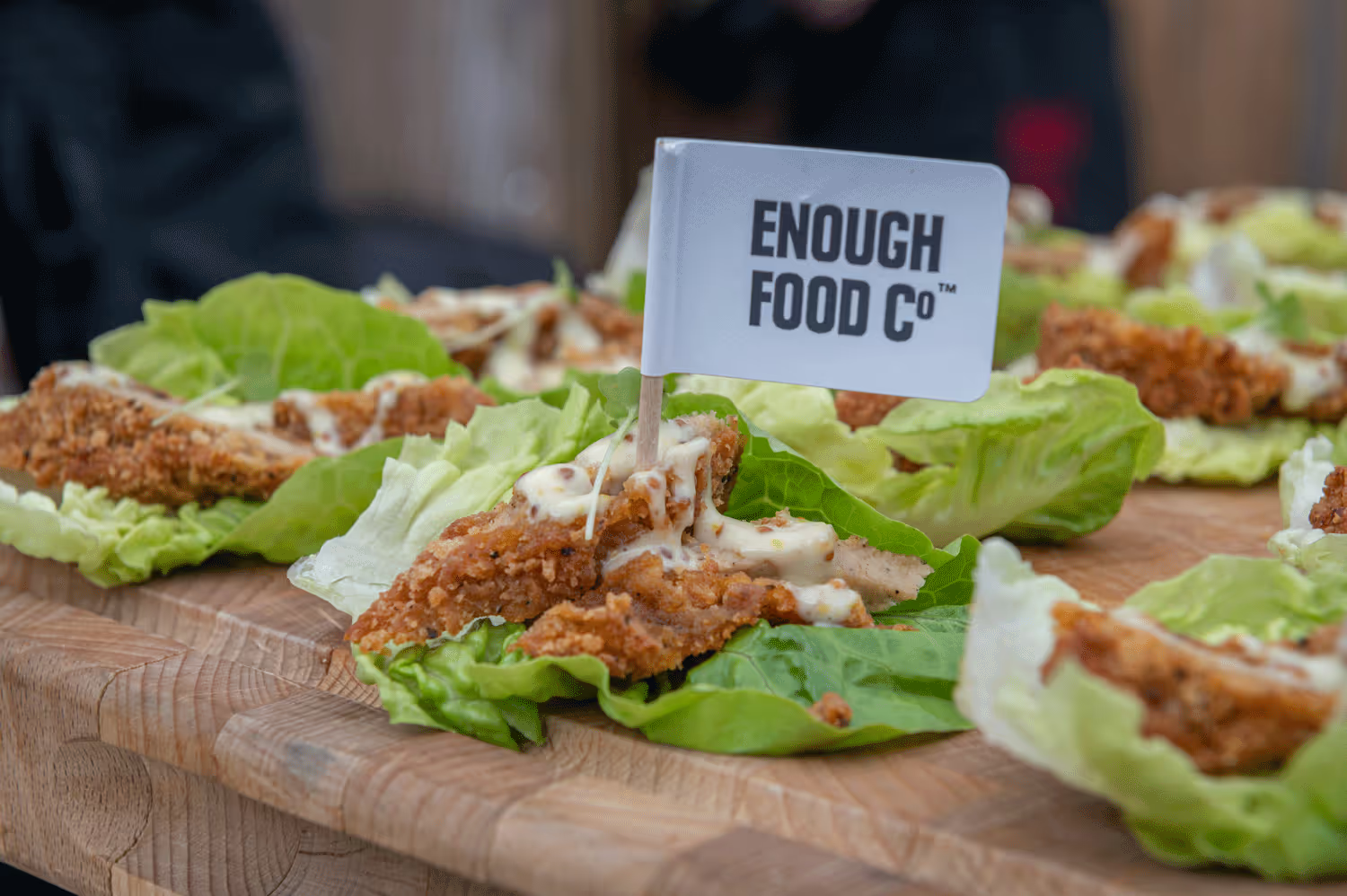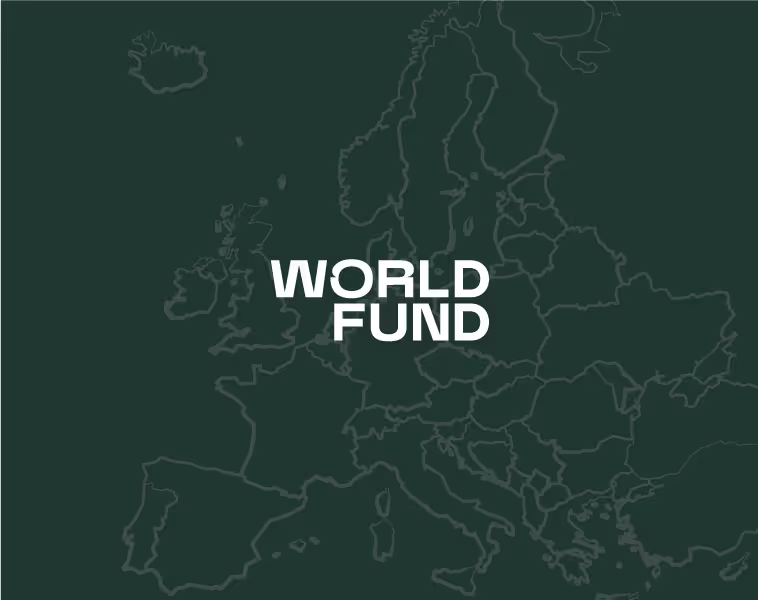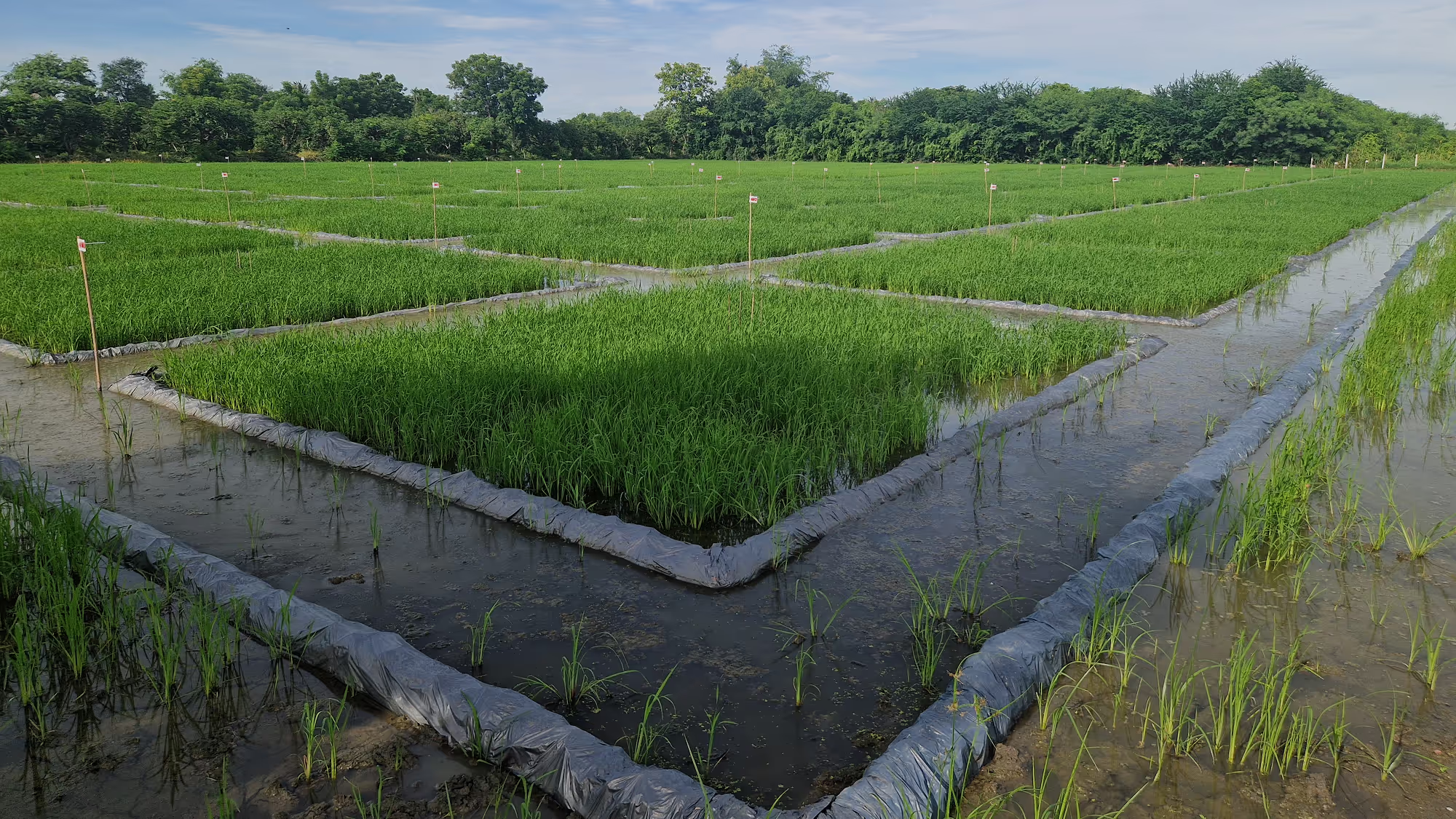Why we invested in Enough

Why we invested in Enough – the world’s largest provider of sustainable protein
Today’s meat consumption accounts for around 20% of all greenhouse gas emissions, with up to 75% of the global population regularly consuming chicken, beef, lamb and pork. The meat industry is one of the major sources of methane emissions, with methane being over 80 times more potent than CO2 in terms of its impact on global warming. With the industry’s need for farmland, it is also one of the largest causes of deforestation resulting in the release of captured CO2 into the atmosphere. As the global population grows, the pressure to find alternative protein sources that not only feed the increasing population but also protect our climate will continue to increase.
To allow alternative proteins to have a meaningful contribution to climate protection, it will be crucial to cater to a much broader consumer audience than today, including those that do not want or cannot afford a meatless lifestyle. To unlock this new mass consumer base, sustainable proteins will need to be much more affordable while replicating the same textures and taste as animal meat. As the global population is set to grow to 10 billion by 2050, it will be essential to ensure the scalability of those solutions.
Our investment thesis is based on ENOUGH’s ability to contribute to solving these challenges by rapidly scaling an alternative protein solution that is overcoming current market limitations.
ENOUGH’s mission statement: We are aiming to produce 1 million tonnes of mycoprotein by 2032 to meet the world’s growing need for sustainable protein.
ENOUGH - a pioneer in large-scale mycoprotein production
ENOUGH is a leading British/Dutch food technology company dedicated to creating sustainable non-animal protein - the ABUNDA® mycoprotein for B2B large-scale customers.
ABUNDA is created by fermenting fungi using renewable feedstocks. It is naturally high in both protein and fibre and offers a meat-like texture with a neutral flavour, allowing for clean labels. In co-developing a variety of meat-alternative and hybrid products with its customers, ENOUGH caters to a broad global consumer audience with versatile preferences.
The mycoprotein revolution
One of the biggest inhibitors of the broader adoption of meat alternatives has been the lack of comparability with animal meat offerings. In comparison to plant-based alternatives, mycoprotein is neutral in taste and has a fibrous texture, which enables food companies to use it as an ingredient to produce products with improved sensory and functional attributes, bringing them to close parity with animal products. Food companies do not need to rely on large quantities of additives, like flavourings, to cover any off-taste, or methylcellulose to improve texture. This caters to consumer requests for clean labels and no processing.
ABUNDA is a complete protein with all 9 essential amino acids and high digestibility, rich in fibre and minerals, no fat (<1g/100g), no sodium, no cholesterol and very low allergy incidence. Compared to common plant proteins such as soy, mycoprotein digestibility is higher, and its allergy incidence is much lower. The mycoprotein amino acid profile and protein digestibility are comparable to highest grade animal sources of protein (milk, chicken, egg and beef), while also presenting comparable positive proven impacts in cholesterol, sugar, and insulin blood levels compared to animal sources.
ABUNDA mycoprotein, therefore addresses the two major limitations of plant-based meat alternatives and is well placed to revolutionize protein consumption.
A meat-alternative nature and wallet can afford
To allow for mass market adoption, consumers’ price sensitivity and food corporations’ margin expectations need to be taken into account when offering protein alternatives.
ENOUGH is in the advantageous position to offer ABUNDA at pricing points that are competitive not only to existing plant-based but also to real-animal meat offerings. This is partly based on the favourable features of mycoprotein but also the company’s first-of-its-kind protein factory being co-located alongside a Cargill facility in Sas van Gent in the Netherlands, which provides the feed source for ABUNDA.
The co-location also allows for process waste to be taken to Cargill’s ethanol production plant, resulting in a zero waste overall production. Creating ABUNDA uses up to 93% less water, 97% less feed and causes 97% fewer CO2 emissions than beef, making it affordable not only for the consumer but also sustainable for our planet.
A trusted and versatile partner
Founded in 2015, ENOUGH has spent the last couple of years co-developing alternative protein products with a global B2B food customer base. Customers benefit from ABUNDA’s functionalities enabling a wide variety of applications. The fibrous texture enables the production of whole-cut meat alternatives as well as mince which poses a big opportunity for companies who want to offer alternatives for every meat product. ABUNDA can also be used alongside real meat to create hybrid products. It can also be used to replace other animal products, such as cheese or seafood.
Replacing animal-based proteins across the board is crucial for reducing overall animal agriculture emissions. This flexibility allows ENOUGH to be an attractive partner for global food players, whilst also making an important contribution to climate protection.
Now scaling the revolution
We are excited to be co-leading ENOUGH’s Series C round alongside CPT Capital - a renowned food tech investor. The new funding will be used to scale up capacity at the company’s factory in the Sas van Gent to serve growing customer demand. The alternative protein market is set to grow to a $290bn market by 2035, and scalability of offerings will be key to cater to this demand.
At its existing Sas van Gent site ENOUGH will be able to produce 60,000 tonnes of ABUNDA annually. By 2032, the company aims to grow over one million tonnes of ABUNDA globally, the equivalent of replacing 5 million cows or over 1 billion chickens.
We are excited to be supporting Jim and his team at ENOUGH in their growth journey to become the global leader of alternative protein ingredients and look forward to jointly protecting our planet.


.svg)
.svg)







.svg)




.avif)